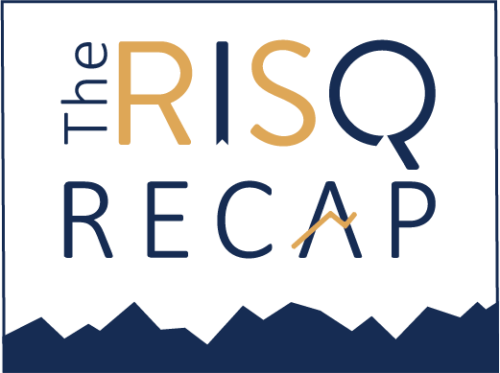
March 28th – April 1st, 2022
Each week, you’ll find specially curated news articles to keep you up to date on the ever-evolving world of insurance and risk management. The articles are divided out between items relevant to Property & Casualty, Employee Benefits/Human Resources, and Compliance. We’ve included brief summaries of each item as well as a link to the original articles.

PROPERTY & CASUALTY
Cloud Apps And Cloud Storage: The Cyber Risks Associated With Both
“Cybercriminals have become more successful at delivering malware through cloud apps. Netskope, a threat and data protection provider, has blocked an increasing number of malware downloads from cloud apps, which now make up an increasing share of total malware downloads. The percentage of malware downloads from cloud apps increased from 46 percent to 73 percent and then plateaued at 66 percent. Google Drive replaced Microsoft OneDrive to become the top app for malware downloads in 2021. The number of credential attacks against managed cloud apps remained level in 2021 compared to 2020. These attacks comprise more than half of all managed cloud app instances. However, the number of sources of these attacks increased markedly in 2021, with each source carrying out fewer login attempts.” Full Article
– Travelers

EMPLOYEE BENEFITS, HUMAN RESOURCES, & COMPLIANCE
ACA Round-Up: Recent Developments “Federal officials continued to issue guidance on the Affordable Care Act in early 2022. This article summarizes the status of the so-called SUNSET rule, new materials for the 2023 plan year, Section 1332 waiver applications for Minnesota and Virginia, new risk adjustment data validation results, and guidance from the Internal Revenue Service and Centers for Medicare and Medicaid Services on the ACA and the eventual unwinding the public health emergency.” Full Article – Health Affairs
On Remand from Supreme Court, Eighth Circuit Rules That ERISA Does Not Preempt State PBM Regulation “Following the reasoning of the Supreme Court in Rutledge, the Eighth Circuit found that none of the challenged provisions in the North Dakota law had an impermissible connection with the ERISA plans. The court stated that the provisions at issue did not: [1] Regulate a central issue of plan administration, [2] Interfere with uniform plan administration, or [3] Force a plan to adopt a specific structure in terms of coverage or choice of insurers.” Full Article – Hall Benefits Law
No Surprises Act: Guidance for Health Plans and Insurers “Recently enacted legislation has restricted surprise medical billing for health plan participants who receive services at out-of- network health provider facilities in emergency contexts. The legislation also restricts surprise medical billing for services provided by health providers at in-network facilities and includes protections involving air ambulance services. Effective beginning in 2022, the legislation imposes significant compliance requirements for group health plans and insurers.” Full Article – Thomson Reuters
Benefits Issues That Arise Upon Misclassification of Employees “The effects of worker misclassification on employee benefit plans may include, but are not limited to: [1] failure to provide employee benefit coverage and appropriate remedial action; [2] failure to make employer and employee contributions to retirement and other employee benefit plans; [3] failure to provide the individual with required benefit plan disclosure and administrative notices; and [4] excise taxes under the ACA for failure to provide required health plan coverage.” Full Article – Foley & Lardner LLP
New Illinois State Law Imposes Disclosure Requirements on Group Health Plans “The CCDA requires employers that sponsor group health plans with employees in Illinois to disclose a comparison of the plan’s coverage to certain ‘Essential Health Benefits’ required by Illinois state law. The CCDA broadly applies, regardless of the employer’s size or its location, to fully insured and self-funded group health plans. Additionally, the Illinois DOL has taken the position that the CCDA also applies to ERISA-covered self-funded group health plans.” Full Article – Miller Johnson
Congress Reopens Door for HSA with No-Deductible Telehealth, But with a Hole “The Consolidated Appropriations Act of 2022 restores the exception for telehealth and other remote services, but only for the period from April 1 through December 31, 2022. This means that if a plan’s year started at any time from January 1, 2022 through March 31, 2022, and the plan did not impose the minimum deductible for telehealth or other remote services from the start of the plan year through March 31, 2022, the plan would not be a high-deductible health plan for that period. Consequently, participants covered by the plan would be ineligible to make or receive HSA contributions for that period.” Full Article – Proskauer

STATE & INTERNATIONAL COMPLIANCE
In addition to the RISQ Review, RISQ Consulting also provides a resource that features changes and updates to State and International Compliance measures. We’ve included brief summaries of each item below, and also provided links to the original articles if you’d like to read further.
Wisconsin
Wisconsin Supreme Court broadens employers’ substantial relationship defense to conviction record discrimination claims
“The Wisconsin Supreme Court recently issued a significant (4-3) decision in Cree, Inc. v. LIRC (Cree), rejecting the view that domestic violence crimes cannot substantially relate to employment.” Full Article
– Godfrey Kahn
California
California May Relax Background Check Process
“Many employers undertake routine background checks as part of their hiring process. To be effective, of course, the process has to be completed in a timely manner. Yet, a recent court decision, All of Us or None v. Hamrick, 64 Cal. App. 5th 751 (2021), made that process appreciably more difficult by prohibiting searches of criminal court records with the use of a person’s birth date or driver’s license number.” Full Article
– Proskauer Rose LLP
Oregon
Oregon Extends Exemption for Certain Payments from Equal Pay Act
“Last year, the Oregon legislature temporarily amended Oregon’s Equal Pay Act to exempt vaccine incentives, hiring and retention bonuses from pay equity considerations. SB 1514 permits employers to continue offering vaccine incentives and hiring and retention bonuses through the end of Oregon’s COVID-19 state of emergency, plus 180 days, without running afoul of the Act.” Full Article
– Jackson Lewis
Florida
Florida ‘Stop WOKE’ Bill Could Impact Employers’ Diversity, Equity, and Inclusion Efforts
“The Stop WOKE Act prohibits employers from requiring employees to participate in certain types of diversity, equity, and inclusion (DEI) training. The bill was recently passed by the Florida House and Senate; Governor Ron DeSantis is expected to sign it into law shortly.” Full Article
– Morgan, Lewis & Bockius
Tennessee
Tennessee Expands Employee Protections Relating to COVID-19 Vaccine Mandates
“Governor Bill Lee has signed into law a bill that expands protections for employees who are subject to employer COVID-19 vaccine mandates. The new law supplements existing state law that prohibits private employers and other entities from compelling or taking “adverse action” against a person to compel the person to provide proof of vaccination.” Full Article
– Proskauer Rose LLP





 Subscribe to the RISQ Recap, a weekly post to help you stay up to date on news articles and resources for your organization’s compliance needs.
Subscribe to the RISQ Recap, a weekly post to help you stay up to date on news articles and resources for your organization’s compliance needs.